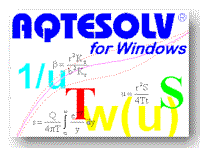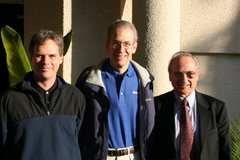 Yesterday we spent a full day visiting and learning about the proposed Yucca Mountain Repository near Las Vegas, Nevada. Dave Buesch from the USGS led an in-depth facility tour and crammed it with fascinating facts and details about the site's history, hydrogeologic investigations and modeling studies. In addition to inspecting exposures on and around the facility, we had the unique opportunity to enter the proposed tunnel and see it up-close and personal. Everyone came away feeling well informed!
Yesterday we spent a full day visiting and learning about the proposed Yucca Mountain Repository near Las Vegas, Nevada. Dave Buesch from the USGS led an in-depth facility tour and crammed it with fascinating facts and details about the site's history, hydrogeologic investigations and modeling studies. In addition to inspecting exposures on and around the facility, we had the unique opportunity to enter the proposed tunnel and see it up-close and personal. Everyone came away feeling well informed!Today (Thursday) marks our second and final day of lectures covering such diverse topics as solute transport, isotope applications, analysis of single-well tests, remediation techniques and demonstration of computer applications for fractured media.
The course concluded with a popular section which invites course participants to discuss their own problems in fractured rock hydrology. Instructors and course attendees shared their views and experiences to the benefit of all.








